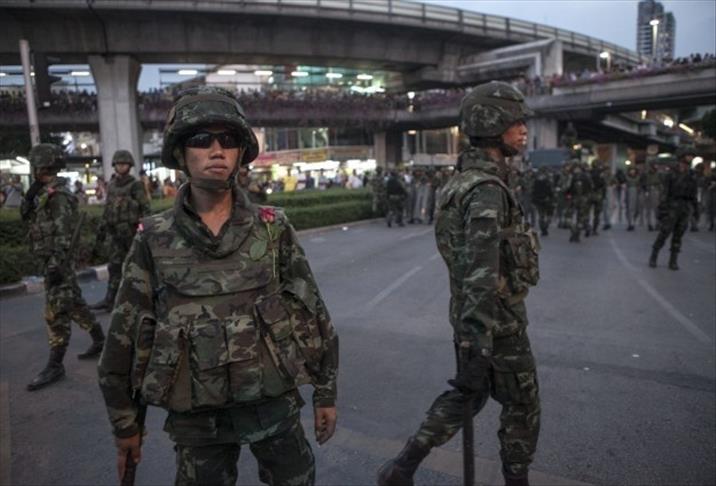Fears of abuse as Thailand ponders hate speech law
Rights groups fear junta will use proposed hate speech clause to further restrict free expression

BANGKOK
Thailand is on the brink of issuing a constitutional ban on ‘hate speech,’ local media reported Thursday, in a move that rights activists fear could provide the junta with another weapon to clamp down on dissent.
If passed by the military-appointed National Reform Committee, the clause would be the first such provision in Thai history.
“The restrictions on freedom of expression will encompass all types of media, including online social media, because hate speech has been the root cause of social conflict in the country,” Kamnoon Sidhisama, spokesman for the constitution drafting committee said, quoted in The Nation newspaper.
Human rights activist Danthong Breen, a former president of the Union for Civil Liberty, Thailand’s oldest human rights group, told The Anadolu Agency he agreed with a ban on hate speech but said it should be clearly defined as “injury of human dignity of a person on ground of gender, race or social or physical disadvantage.”
“There must be a generic definition of what constitutes hate speech and also a matter of degree,” he said.
Thailand was torn apart from November 2013 to May last year by massive demonstrations for and against Yingluck Shinawatra’s administration, which was overthrown by the military in a May 22 coup. Speakers and media regularly used insulting language to attack their opponents.
The proposed article states that an individual’s freedom of expression must be used within legal limits and could be curbed if it threatens national security or other people’s rights and to prevent inspiring hatred.
The article does not specify a legal punishment for offenders and does not define the notion of hate speech.
Previous constitutional limits on freedom of expression have not mentioned hate speech.
The 2007 constitution, abolished by the junta, stipulated that freedom of expression could be restricted for the “purpose of maintaining the security of the state, protecting the rights, liberty, dignity, reputation or privacy rights of others and for preserving public order and good morals.”
The amendment must be approved by the 220-member National Reform Council before it is enacted.
Civil liberties have come under attack from the military regime with restrictions on the media and an increased use of the lese majeste laws that ban criticism of the royal family.
Anadolu Agency website contains only a portion of the news stories offered to subscribers in the AA News Broadcasting System (HAS), and in summarized form. Please contact us for subscription options.







